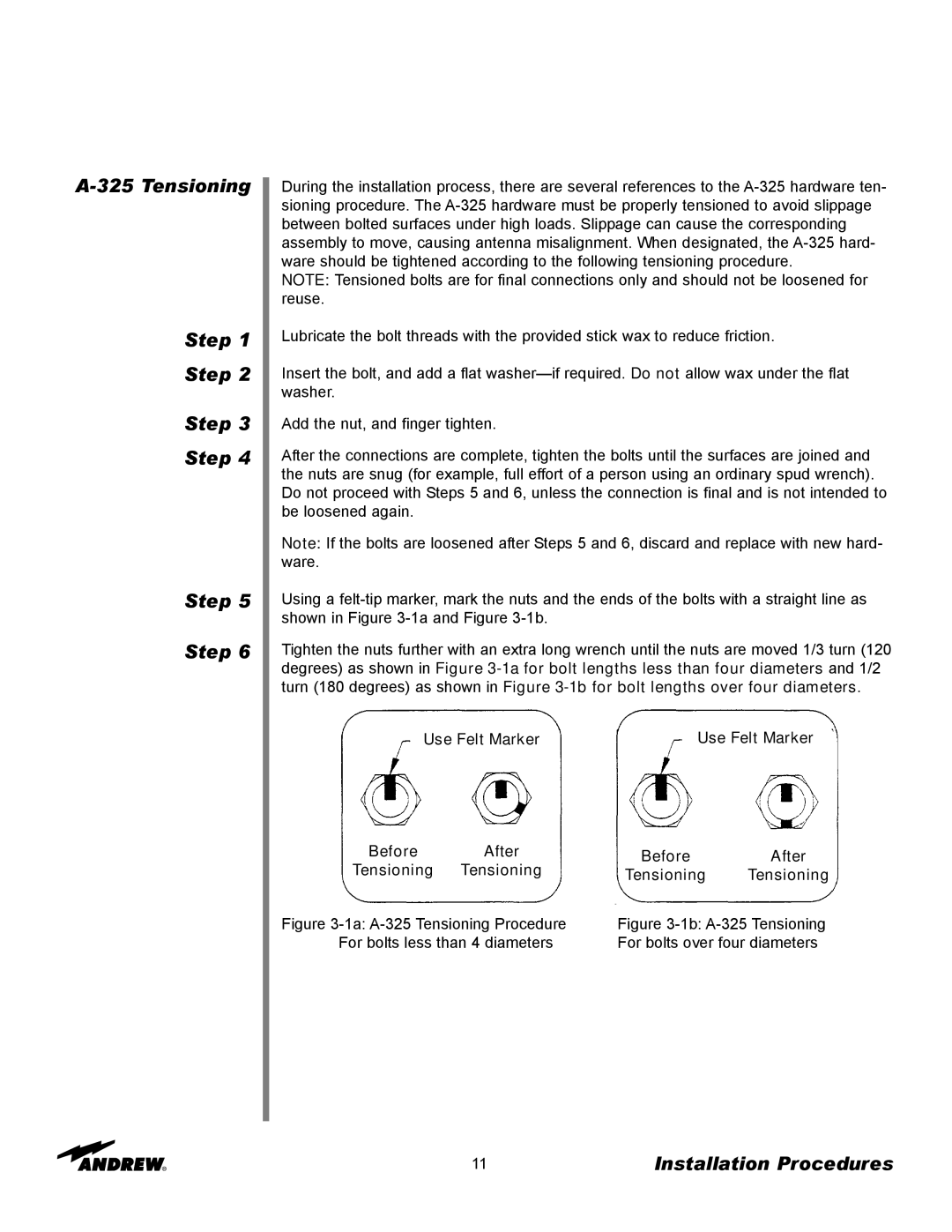
A-325 Tensioning
Step 1
Step 2
Step 3
Step 4
Step 5
Step 6
During the installation process, there are several references to the
NOTE: Tensioned bolts are for final connections only and should not be loosened for reuse.
Lubricate the bolt threads with the provided stick wax to reduce friction.
Insert the bolt, and add a flat
Add the nut, and finger tighten.
After the connections are complete, tighten the bolts until the surfaces are joined and the nuts are snug (for example, full effort of a person using an ordinary spud wrench). Do not proceed with Steps 5 and 6, unless the connection is final and is not intended to be loosened again.
Note: If the bolts are loosened after Steps 5 and 6, discard and replace with new hard- ware.
Using a
Tighten the nuts further with an extra long wrench until the nuts are moved 1/3 turn (120 degrees) as shown in Figure
Use Felt Marker
Before After
Tensioning Tensioning
Figure 3-1a: A-325 Tensioning Procedure For bolts less than 4 diameters
Use Felt Marker
Before After
Tensioning Tensioning
Figure 3-1b: A-325 Tensioning For bolts over four diameters
11 | Installation Procedures |
